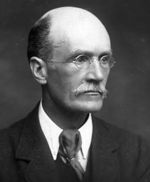[After an extended discussion of the Stoic philosophy Murray concludes:]
Religious people, philosophers and, in their unguarded moments, even atheists make the tremendous assumption “that there is a beneficent purpose in the world and that the force which moves nature is akin to ourselves.”
Murray believes that psychologists have correctly shown that human beings are subject to ideas of which they are normally unconscious. Among them is the belief that somehow there is a “Friend behind phenomena”—that when we strive for good there is some external force working in the same direction.
He describes this as the remnant of very old ineradicable instinct. As herd animals, we are only comfortable when there are others of our kind around [That is why solitary confinement is so punishing.] and we have an eternal yearning for a leader. Reaching for that “Friend behind phenomena” may be “the groping of a lonely-souled gregarious animal to find its herd or its herd-leader in the great spaces between the stars.


